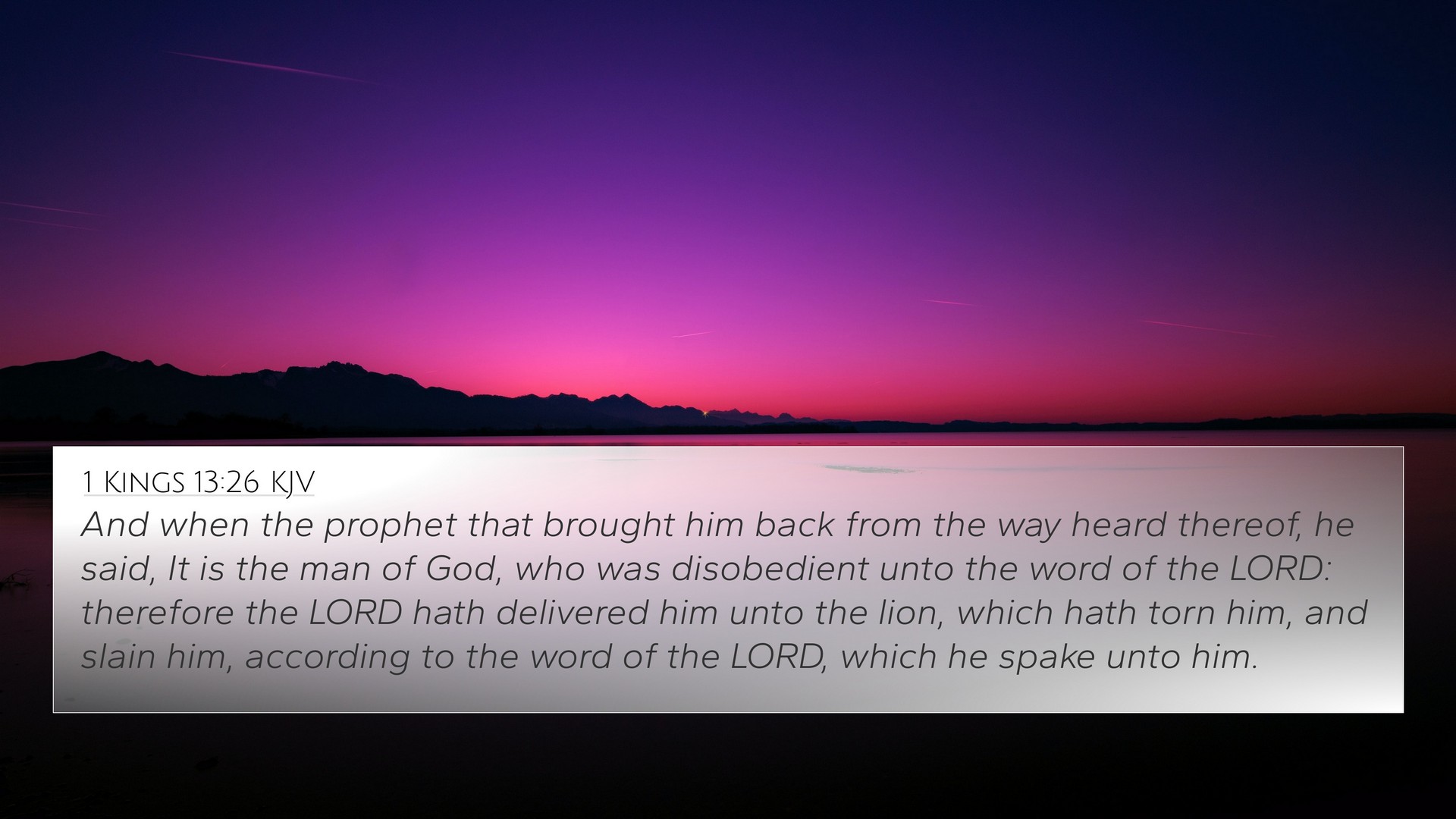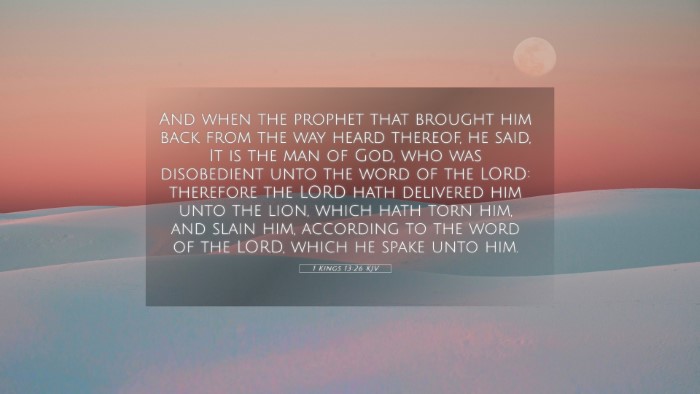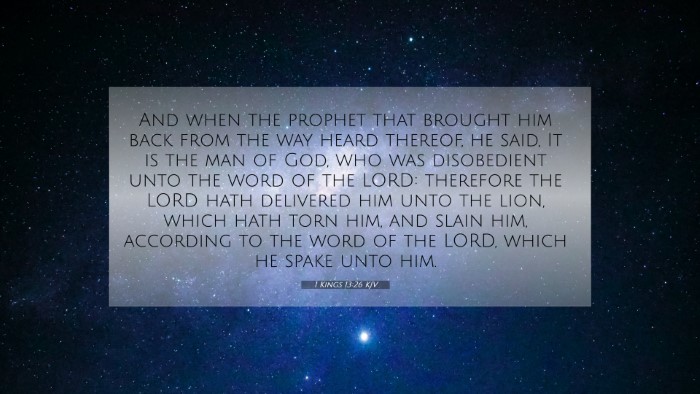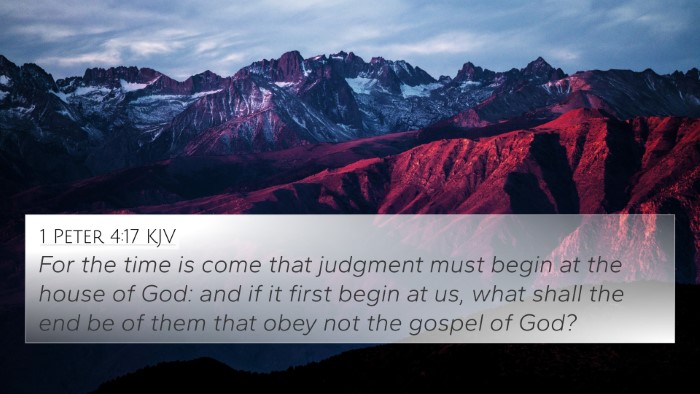Understanding 1 Kings 13:26
Verse Context: 1 Kings 13:26 states, "And when the prophet that brought him back from the way heard thereof, he said, It is the man of God, who was disobedient unto the word of the LORD: therefore the LORD hath delivered him unto the lion, which hath torn him, and slain him, according to the word of the LORD, which he spake unto him."
This passage narrates a significant event where a prophet disobeys God’s explicit command. The scripture carries profound implications regarding obedience, divine judgment, and the consequences of straying from God's instructions.
Key Insights from Public Domain Commentaries
Matthew Henry's Commentary
Matthew Henry emphasizes the gravity of disobedience to God. He notes that the man of God, who was initially commanded by the Lord, succumbed to external pressures, leading to his demise. Henry underscores that the Lord's judgments are not arbitrary but are rooted in righteous authority. The prophet's fate serves as a warning about the seriousness of heeding God’s voice and the potential repercussions of ignoring divine commands.
Albert Barnes' Notes on the Bible
Barnes points to the notion of divine justice in the narrative. He articulates that the lion acting as an instrument of judgment symbolizes God's unyielding truth regarding obedience. Barnes also connects this event to a broader understanding of prophetic roles in Israel, positing that this incident indicates the need for true prophetic discernment and accountability.
Adam Clarke's Commentary
Adam Clarke offers a detailed analysis, suggesting that this account illustrates the power of God’s word. He highlights that the lion's attack was not merely a natural occurrence but a divine act indicative of God’s displeasure. Clarke also reflects on the notion of divine intervention in human affairs and how that continues to resonate throughout scripture, serving as a reflection on the importance of adherence to God's commands.
Thematic Connections and Cross-References
This verse can be cross-referenced with various scriptures that share similar themes of obedience and consequence:
- 2 Kings 17:13-14: Illustrates Israel's disobedience and the resulting consequences.
- Deuteronomy 28:15: Details the blessings and curses associated with obedience and disobedience.
- Jeremiah 7:24: Pertains to Israel's rebellion against divine instruction.
- The book of Hosea (Hosea 4:6): Speaks of the consequences of lacking knowledge of God's law.
- Proverbs 10:17: Emphasizes the gains of heed to instruction.
- Luke 9:62: Jesus speaks on the importance of being focused on the tasks commanded by God.
- Romans 2:6-8: Discusses how God will repay each person according to their actions.
- 1 Peter 4:17: Addresses judgment beginning with the house of God.
- James 1:22: Urges believers to be doers of the Word, not merely hearers.
- Revelation 3:19: Jesus disciplines those He loves, indicating the need for repentant obedience.
Conclusion: The Importance of Obedience
The narrative of 1 Kings 13:26 is a cautionary tale about the importance of obedience to God’s commandments. The cross-referenced verses highlight a recurring theme throughout the Bible: the necessity of listening to and adhering to God’s instructions, as disobedience comes with severe consequences.
For those seeking a deeper understanding of biblical themes, employing Bible cross-reference guides and tools for Bible cross-referencing can provide invaluable insights. A comparative study of related verses enhances one’s grasp of scriptural context and divine principles.
Understanding the themes evident in 1 Kings 13:26 through both a standalone analysis and its connections to other scriptures encourages a thorough exploration of Scripture and its divine truths.











